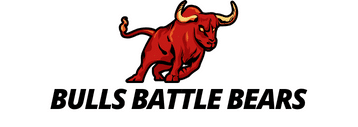Blockchain technology is revolutionizing various sectors, from finance to supply chains. Today we shift our focus to the food industry, specifically food traceability. The primary goal is to understand how blockchain technology is being used to improve food safety, quality, and transparency. Keywords like blockchain, food traceability, supply chain, data, industry, and technology form the backbone of this exploration.
The Food Supply Chain and It’s Challenges
Before diving into how blockchain is transforming the food industry, let’s take a moment to understand the traditional food supply chain and the challenges it faces. The chain starts from the farm, where the food is produced, all the way to your plate. In between, the food goes through numerous processes such as harvesting, processing, packaging, storing, and transporting.
A lire également : What surprises await you in the gods mystery box?
Current food supply chains face numerous challenges such as food fraud, inefficient recall processes, and lack of transparency. Food fraud is a significant problem, leading to global losses estimated at $10 to $15 billion annually according to research data from Google.
Inefficient recall processes pose a risk to food safety. When a foodborne disease outbreak happens, it’s essential to quickly identify the source and remove the infected products from the market. Current systems are slow and inefficient, putting consumers at risk.
Sujet a lire : Can AI Help Improve the Accuracy of Tidal Energy Generation Predictions?
The lack of transparency is another major issue. Consumers are increasingly interested in knowing where their food comes from, the ingredients used, and the impact of its production on the environment. However, this information is often difficult to access and verify.
Blockchain Technology in Food Traceability
Enter blockchain technology. It’s a system that enables data to be stored and shared across a network of computers. The data is stored in blocks and each block is linked to the one before it, forming a chain. Once a block has been added to the chain, it’s nearly impossible to change or delete it. This provides a reliable and tamper-proof record of transactions.
In food traceability, blockchain can store all kinds of data, from the farm of origin, harvesting data, processing and packaging details, to shipping information. Each participant in the supply chain, such as farmers, processors, and retailers, can access and add data to the blockchain. This can significantly improve transparency and efficient traceability.
Blockchain also provides a solution to food fraud. Since the blockchain is tamper-proof, it’s nearly impossible to falsify data. If a product claims to be organic, for example, its blockchain record can reveal whether it indeed comes from an organic farm.
Making Trading Safer and More Efficient with Blockchain
Trading is another critical area where blockchain can make a significant impact. In the food industry, traders can use blockchain to verify the quality and origin of products more efficiently. Traders can access the blockchain records of a product and verify its quality before making a purchase.
Blockchain can also improve the efficiency of the trading process. For instance, the blockchain can automate payment processes through smart contracts. This can help to speed up transactions and reduce the risk of fraud.
Furthermore, blockchain can help to make recalls more efficient. In case of a foodborne disease outbreak, blockchain can quickly trace the source of the outbreak. This can help to remove infected products from the market more quickly and efficiently.
The Future of Blockchain in Enhancing Food Traceability
Despite the potential benefits, blockchain technology in food traceability is still in its early stages. There are still challenges to be overcome such as the integration of blockchain with existing systems, the standardization of data formats, and the need for more research and education on the technology.
However, the potential applications and benefits are significant. As awareness and understanding of blockchain technology continues to grow, so too will its implementation in the food industry. LinkedIn, for example, has seen a significant increase in blockchain-related job postings in the food industry in recent years.
Blockchain technology has the potential to significantly enhance food traceability. It can provide a solution to food fraud, improve recall processes, and increase transparency. As the food industry continues to explore and harness this technology, consumers can look forward to more reliable and transparent information about the food they consume.
Blockchain-Based Food Traceability and Consumer Confidence
A key benefit of blockchain technology in food traceability is its role in boosting consumer confidence. With the increasing awareness among consumers about the source and safety of their food, the food industry faces a growing demand to provide transparent information. This includes the origin of the food product, the methods used in production, and the impact on the environment. Blockchain technology, with its transparent and tamper-proof features, can effectively respond to these demands.
Consumers can access the blockchain network and verify the data of any food product. For example, they can check if the claimed organic vegetables truly come from an organic farm, or if the free-range chicken was indeed raised in a free-range environment. This real-time access to verified information can enhance consumer confidence in the food they consume.
Moreover, blockchain technology can also tackle one of the significant issues concerning consumers – food fraud. Food fraud, which includes mislabeling of products or mixing inferior quality substances, can be effectively controlled with blockchain. As the information on the blockchain can’t be tampered with, it provides a reliable source for verifying the authenticity of the food product.
Social media platforms have started to integrate with blockchain-based food traceability systems. They provide a platform for consumers to share their food stories, trace the origin of their food, and stay updated on food safety issues. This interaction between consumers and the food supply chain through blockchain is reshaping the food industry, making it more transparent and consumer-centric.
Blockchain Technology and Data Ownership in Food Traceability
One of the significant challenges in the food industry is data ownership and management. In the conventional supply chains, data is often siloed and owned by individual entities. This fragmented data ownership often results in inefficiencies and lack of transparency in the food supply chain.
Blockchain technology, with its decentralized nature, provides a unique solution to this problem. In a blockchain-based food traceability system, data is shared and verified across the network. This eliminates the need for a central authority for data management. Instead, each participant in the supply chain, from the farmer to the retailer, has access to and can add data to the blockchain. This democratic approach to data management enhances transparency and efficiency in the food supply chain.
Adding to this, blockchain technology promotes data integrity. Once the data is added to the blockchain, it cannot be altered or deleted. This ensures that the data on the blockchain is reliable and credible, further enhancing the transparency and trust in the food supply chain.
Conclusion: Embracing Blockchain for a Transparent Food Traceability
While the application of blockchain technology in food traceability is still in its infancy, its potential to revolutionize the food industry is undeniable. Blockchain technology addresses the challenges of food fraud, recall processes, and lack of transparency, thereby enhancing food safety and consumer confidence.
Despite the challenges of integrating blockchain with existing systems and standardizing data formats, the food industry is making significant strides in harnessing the power of blockchain. The increase in blockchain-related job postings in the food industry indicates the growing recognition of blockchain’s potential.
Consumers are now demanding more transparency and authenticity in the food they consume. Embracing blockchain-based food traceability is a step towards meeting these demands. By doing so, the food industry can ensure enhanced food safety, improved supply chain efficiency, and heightened consumer trust. As we continue to explore and harness this technology, the future of food traceability looks promising and exciting.











